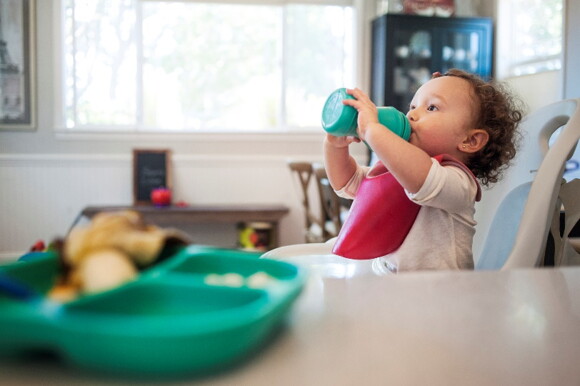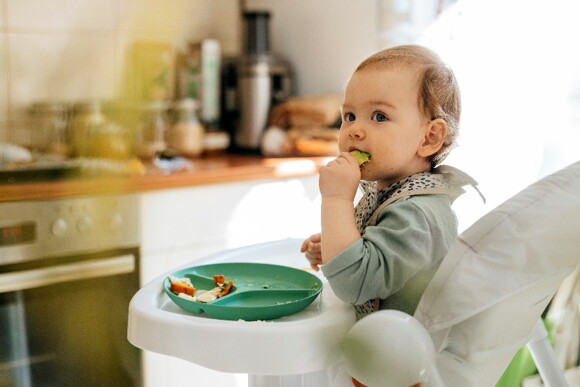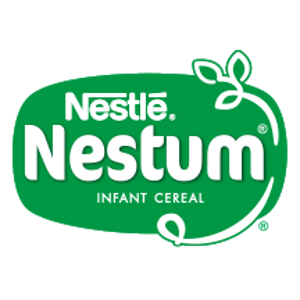
Guide to a Healthy Toddler Diet
Knowing how to provide a healthy toddler diet can lead to your little one having a lifetime of healthy eating.
As a mother, ensuring your toddler receives the right balance of nutrients is paramount for their growth and development, and finding an optimal toddler diet can be overwhelming and it can even feel impossible to find. However, there are a few important guidelines to follow.
In Baby&Me, we'll delve into the fundamental components of a healthy toddler diet, covering essential vitamins and minerals crucial for their growing bodies and active minds.
From the importance of incorporating fruits and vegetables to the role of proteins and carbohydrates in fueling their boundless energy, we're here to equip you with practical tips and expert advice tailored specifically for your toddler's evolving palate.
We understand that mealtime with toddlers can sometimes be a challenge, but with our tried-and-tested strategies for encouraging healthy eating habits, you'll be able to transform even the pickiest eater into a budding food enthusiast.
How a Healthy Diet Helps Your Toddler?
A healthy diet is the cornerstone of your toddler's growth, development, and overall well-being. It supports healthy weight gain, muscle development, and the formation of strong bones and teeth.
Nutrients found in healthy foods are crucial for brain development and cognitive function in toddlers. Providing a diet abundant in these nutrients promotes optimal brain growth, learning, and memory.
Also, exposing your toddler to a variety of nutritious foods from an early age lays the foundation for healthy eating habits later in life. Offering a diverse range of flavors, textures, and food experiences helps develop their palate and encourages them to make nutritious food choices as they grow older.
By prioritizing a healthy diet for your toddler, you're investing in their long-term health, happiness, and success. With the right balance of nutrients and wholesome foods, you can nurture their growth, support their development, and lay the groundwork for a lifetime of optimal health and well-being.

What Does a Toddler Need in Their Diet?
Proper nutrition plays a pivotal role in supporting your little one's rapid growth and development. As your toddler explores the world around them with boundless energy and curiosity, their dietary needs evolve to fuel their adventures.
- Aim to provide a variety of nutrient-dense foods to meet your toddler's growing needs. Include plenty of fruits, vegetables, whole grains, lean proteins, and healthy fats in their diet. These foods supply essential vitamins, minerals, and antioxidants.
- Protein is essential for your toddler's muscle development and growth. Incorporate sources of lean protein such as poultry, fish, eggs, dairy products, beans, lentils, and tofu into their meals and snacks.
- Healthy fats are crucial for brain development and energy. Include foods rich in unsaturated fats like avocados, nuts, seeds, and olive oil in your toddler's diet.
- Calcium is vital for building strong bones and teeth. Ensure your toddler gets enough calcium from dairy products like milk, yoghurt, and cheese, as well as fortified plant-based alternatives.
- Iron supports healthy blood cell production and cognitive development. Include iron-rich foods such as lean meats, poultry, fish, fortified cereals, beans, lentils, and dark leafy greens in their diet.
- Fiber aids in digestion and helps prevent constipation. Offer a variety of fiber-rich foods like whole grains, fruits, vegetables, and legumes to keep your toddler's digestive system happy and healthy.
- Encourage your toddler to drink plenty of water throughout the day to stay hydrated. Limit sugary drinks and opt for water as the primary beverage choice.
By providing a balanced diet rich in essential nutrients, you'll lay the foundation for your toddler to thrive and reach their full potential. Remember, every bite counts in nourishing your little one's growing body and curious mind.

Tips to a healthy toddler diet
Ensuring your toddler maintains a healthy diet can sometimes feel like a balancing act, especially with their ever-changing tastes and preferences. Here are some practical tips to help you promote a healthy toddler diet:
Lead by Example
Children often mimic the eating habits of their parents and caregivers. Be a positive role model by enjoying a variety of nutritious foods yourself, demonstrating the importance of balanced eating.
Offer a Variety of Foods
Introduce your toddler to a wide range of foods from an early age to expand their palate and ensure they receive a diverse array of nutrients. Be patient and persistent, as it may take several attempts before they accept new flavors and textures.
Create a Routine
Establish regular mealtimes and snacks to provide structure and consistency in your toddler's eating schedule. Aim for three meals and two to three snacks per day, spaced evenly throughout the day to maintain energy levels.
Get Creative with Presentation
Make mealtime fun and engaging by presenting foods in creative ways. Use cookie cutters to shape sandwiches, arrange fruits and vegetables into colorful patterns, or involve your toddler in food preparation to spark their interest in trying new foods.
Encourage Self-Feeding
Allow your toddler to explore and self-feed during mealtime, even if it gets messy. Offering age-appropriate utensils and foods that are easy to grasp encourages independence and fosters a positive relationship with food.
Limit Added Sugars and Salt
Minimize your toddler's intake of sugary snacks, desserts, and processed foods high in sodium. Opt for natural sweeteners like fruits and limit the use of salt in cooking and seasoning.
Be Patient and Persistent
Toddlers can be selective eaters, so it's essential to remain patient and continue offering a variety of healthy foods. Avoid pressure or force-feeding, as this can lead to negative associations with mealtimes.
Involve Your Toddler in Meal Planning
Engage your toddler in meal planning and grocery shopping activities to empower them and encourage a sense of ownership over their food choices. Offer simple choices to allow them to express preferences and make decisions.
Seek Professional Guidance if Needed
If you have concerns about your toddler's eating habits or nutritional intake, don't hesitate to seek advice from a pediatrician or registered dietitian specializing in pediatric nutrition. They can provide personalized recommendations and support to ensure your toddler thrives.
By incorporating these tips into your daily routine, you can foster a positive and healthy relationship with food for your toddler, setting them up for a lifetime of nutritious eating habits.
Prioritizing a healthy diet for your toddler is one of the most important gifts you can give them. A well-balanced diet not only supports their physical growth and development but also enhances their immune function, boosts their energy levels, and fosters positive eating habits that can last a lifetime.
SOURCE:
https://www.bbcgoodfood.com/howto/guide/nutrition-guide-toddlers
https://www.stanfordchildrens.org/en/topic/default?id=toddler-nutrition-90-P02291

Gain a better understanding of your child's development with the help of our stages
































